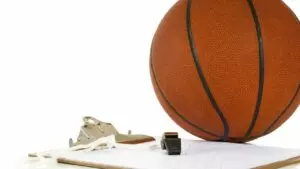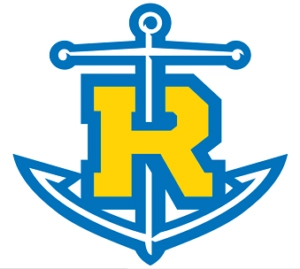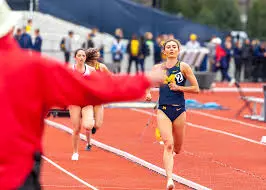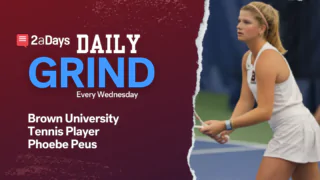Joe Burke, Skidmore College Men's Basketball coach, is the winningest coach in program history. Over the course of his ten-year career at Skidmore, Coach Burke has won 168 games and 5 conference championships, appearing in 6 NCAA tournaments and coaching 22 All Liberty League players and 2 All Americans. He also boasts the school record for wins and the school record for wins in the Liberty League. In addition to being an esteemed coach that incorporates his experience at the Division 1 level into his coaching at Skidmore, he also holds his players to high academic standards, having coached a myriad of All Liberty-League Academic players and multiple Academic All Americans. Coach Burke runs his program like a family, and his players will tell you that they have never been a part of a team that is as close-knit as the Skidmore basketball team.
2aDays: What makes the Skidmore Basketball Program unique amongst other Division III schools in the Northeast?
I think the most important thing that makes us unique is that we are a great academic school with a great basketball program that is in a great town, and there's just not a lot of that in the Northeast. The majority of the schools that are like us are in very remote areas.
2aDays: How would you describe your coaching style?
I live by what I call the three Ps. Passion, Patience, and Perseverance. I think it allows me to be flexible with each team I have, but you always have to have all three of those features understanding that there will be plenty of ups and downs during the season.
2aDays: What are the best ways for a recruit to get on your radar, and how should a potential recruit reach out to you?
I think the best way is to visit the campus and to be able to place a face with the name, and obviously, you need to send-film and have your coach call preferably someone who knows me in the process moves a lot quicker. I think it's also important to emphasize something that you're really good at, which can separate you from the hundreds of emails we get.
2aDays: What are the three key characteristics that you look for in potential recruits?
Talent, academics, and coachability which includes body language.
2aDays: How can a high school player prepare for the rigor of your program?
To be honest, they can prepare as hard as they want, but there's no match for the length and physicality of a college season. I think those that come from high-level programs play high-level competition and play long seasons are more prepared, but that being said no one‘s ever prepared it's kind of trial by learning
2aDays: What can a high school player expect to be the most significant adjustment when they start your program?
The fact that they are forced to be self-sufficient. It gets back to learning on the job. They need to understand the importance of time management and taking care of basketball, academics, and being smart socially on campus. It's a tough job for a freshman, especially if it's their first year away from home.
2aDays: What are your expectations for your players on and off the court? How do they differ from other D3 basketball programs?
My background is in division one, and I spent ten years there, so we run our program that way. I have the same expectations for my guys that I did for my Division I players. They are to be improving their game continually, constantly being on top of their academics, doing a great job with community service, and being a positive-face on campus.
2aDays: Academic troubles, unfortunately, happen. If one of your players is having difficulty, what academic support systems do you have in place for those athletes?
Well, then it becomes an individual conversation that we have multiple times a week. We obviously reach out to our academic advisor to ensure the student is getting proper help, but it's also important that they report back to the coaching staff with their progress. There's a difference between struggling academically and not putting the time in; it's important to get a resolution to that.
2aDays: Do you take walk-ons, and if so, what should a walk-on to your program expect?
I've always had great success taking walk on's, and once they are on the team, they are regular players and treated as such. They have every opportunity to improve and get better and earn playing time just like everybody else. The biggest reason they are walk-on initially is that I didn't have the chance to recruit them, or I didn't get to know them personally as some of the other guys.
2aDays: What advice do you give to players on your team who think they should be playing, but you know they are just not quite there?
I think you have to be honest and open with them. Also, an important thing is for the player to come to the coach and ask the question, I've always kept my roster relatively small, so the communication line should be good. That being said, if a player needs to get better, I have no problem telling them what they have to do and why they are not playing.
2aDays: What do you think are the benefits for a player to be on your team outside playing college basketball?
My hope is that they grow as people, as adults, as leaders, and eventually as fathers.
2aDays: In your program, what makes a coachable athlete?
Body language in my opinion, I just think for a coach even if you make mistakes and you're dealing with players that know how to take constructive criticism and put the work in and do it in a positive way, and those are the guys you wanna coach every day.
Fun Questions
2aDays: What is the craziest thing you saw a parent do during a game?
I honestly try and block a lot of this out as a coach, but you do see some interesting things when you're on the road recruiting. I once saw this kid's dad basically harass the kid he was playing against. I guess they were rivals, but he really got in the kid to the point where he embarrassed his own son and ended up getting thrown out.
2aDays: What is the most fun part about being a coach?
The biggest thing for me is seeing the joy on young people's faces when they accomplish something as a group. To me, that's the greatest thrill.
* Originally published on August 31, 2020, by Jordan Cole







